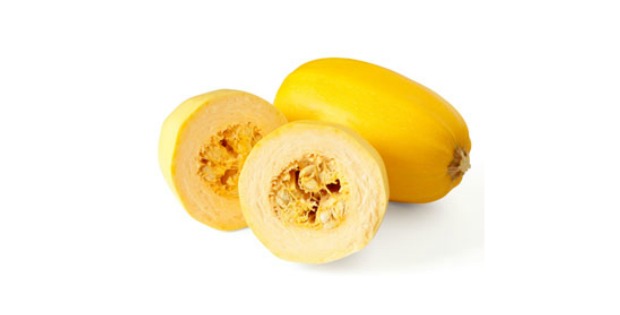
It’s that time of year again! Winter squash are ripe on the vines, and gardeners are witnessing all their hard work come to fruition in the form of colorful, curvacious plants. Unlike their softer-skinned cousins summer squash, the winter type tends to stick around a while when cared for correctly. That means you can benefit from all that delicious Vitamin A and C that’s concentrated inside your squashes well into the springtime. With proper harvesting techniques winter squash can last up to eight months in storage!
Squash should ideally be harvested before the first frost. If for some reason your squash aren’t ripe before freezing temperatures arrive, provide protection by placing a tarp or loose straw covering on top of them.
You’ll know your squashes are ready when rinds become hard and stems begin to shrivel up and split. Squash vines may have a ragged, dry appearance when they’re ripe. Another way to test for readiness: press your thumbnail against the skin of the squash. If it leaves behind a dent, wait to harvest.
Once you’re sure you’ve got a ripe squash, cut it from the vine using pruning shears or a sharp knife (never pull!) and leave behind 2-3 inches of stem. Next, leave your squashes in the sun to “cure.” This means leaving squash out in the sun, unwashed, for a week or two. Air temperature should ideally be 70-80 degrees Fahrenheit. Curing leaves the flesh sweeter and the skin tougher, which is helpful when it’s time for storage.
You can prevent rot by wiping cured squash with a cloth dipped in a weak bleach solution of 4 teaspoons bleach per gallon of water, suggests the DIYNetwork. Don’t rise the squash until you’re ready to use it. Squash should be stored in a cool and dry location that’s well-ventiled and aroud 50 degrees Fahrenheit. To minimize bruising, place squash on a pile of soft clothing or newspaper, and never stack more than two squash on top of one another. Make sure to check your squashes every two weeks or so for signs of spoilage!
How can you tell what the shelf life of your squash will be? The expiration date depends partly on what happened before the squash was harvested. If your squash was exposed to excess moisture or fertilizer, or if it was kept out during freezing temperatures, it won’t last as long in storage. Otherwise, as a general rule:
- Thin-skinned squashes such as acorn and spaghetti last 1-3 months.
- Hubbard, cushaw, delicata, dumpling and buttercup squash last 3-6 months.
- Butternut squash last 6-8 months.
SKM: below-content placeholderWhizzco for CRH

